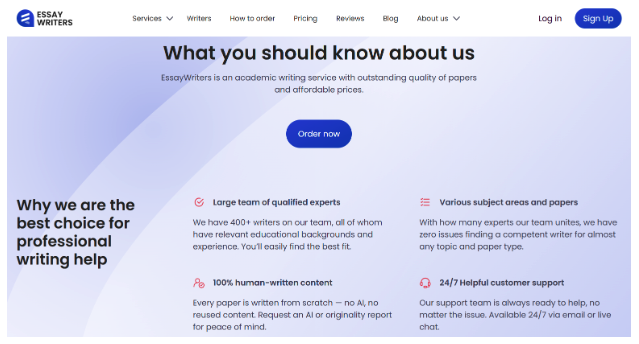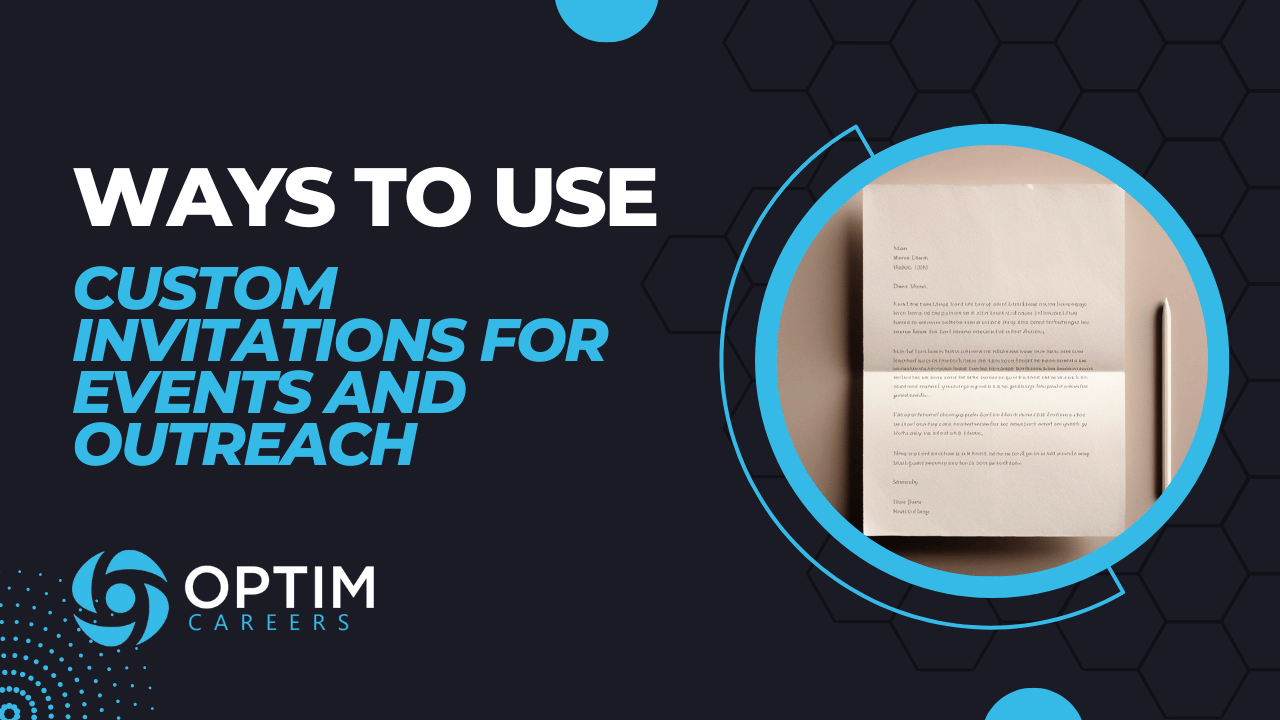Resume Worded Review [Is It Worth It?]
One of my favorite things to do is try out new tools that can help job seekers. This month, I started using a program called Resume Worded. The site claims to be designed by recruiters and claims that it can get you 5x more interviews and job offers.
Because I’m always skeptical of claims like that, I decided to try it.
I wanted to be fair, so I used a resume for a program manager job that I had recently written and had gotten several interviews in the past month - so I know the resume is good. Of course, I scrubbed off any personal information to be safe, but I kept the non-identifying content the same.
Here was my experience about whether or not it really could 5x my interviews (from a recruiter’s perspective).
What is Resume Worded?
Resume Worded came out around 2017, so it’s been on the market for quite some time. It was created by a software engineer who has founded several startups. It’s essentially a program that can help you write a resume and update your LinkedIn profile.
It’s free to try and provides instant feedback on your resume. The site claims to be designed by recruiters, but I could find no evidence of that anywhere (and spoiler alert, based on my experience, I doubt that it was created by any recruiters).
Resume Worded Pricing
You can try Resume Worded for free, but to unlock most of the features, you’ll need a monthly subscription. At the time I used Resume Worded it cost $49/month or $99 every 3 months. It also had a year option.
Compared to similar resume writing software I like, such as Huntr or Teal, that seems to be a bit on the higher side.
Resume Import Review
When you first start using Resume Worded, it asks you to upload your resume. I used a resume I knew had worked recently in multiple ATS systems and had gotten interviews both at the phone screen and hiring manager interview stages.
I’m not going to lie; I was pretty bummed that right off the bat, Resume Worded couldn’t read my resume. It couldn’t find my experience section, and that’s because it can only read resumes that have very rigid section headings.
The program told me that I had to change my section heading to Experience in order for it to read it. This was sad because it was formatted like a typical work experience section and parsed fine into multiple ATS systems. I expected an AI program to be able to figure this out. Let’s say we weren’t off to a great start.
Resume Scoring Review
Once I changed the resume section header and imported my resume again, it took me to a page that scored my resume. It gave my resume an 80 out of 100 score. Having known that this resume was working really well in a challenging market (and the fact that I’ve been doing this recruiting and resume writing thing since 2015), I was curious about the improvement suggestions.
Scoring Based on Date Formats
Resume Worded said that I scored well on page density and not using buzzwords and cliches but that I scored low because of weak verbs and dates. The dates were because I didn’t format them the specific way this AI wanted me to.
I didn’t put much stock in that because I know this resume has been working and that hasn’t been a problem. Nor have I seen any ATS or know of any recruiter who will toss out a good resume because of how the dates are formatted.
This seemed silly to me - especially because I used months and years in my resume which is standard practice.
Scoring Based on Action Verbs
In regards to the verb choices, I also didn’t put much stock in this because I used straightforward verbs in my bullet points such as enabled, rolled out, produced, or partnered with. All of those I know are good choices. It wanted me to use more flamboyant language which I disagreed with.
So far, Resume Worded wasn’t performing up to my expectations, but I continued on.
Scoring Based on Personal Pronouns
Most people know that resumes are written in first-person implied tense, meaning there are no personal pronouns. While Resume Worded understands this, their software cannot tell the difference between a stand alone “me” or “I” vs when it is included in another word.
For example, in the resume I used, I had words such as “enablement” and “consume,” both of which have “me” included in them. Resume Worded picked up on this and told me that I was using personal pronouns even though I wasn’t.
Scoring Based on Education
Resume Worded said that I needed to fix my education section because I did not list dates of graduation. While I do think there are some situations where it makes sense to list your graduation dates, I also think there are many where it doesn’t. If someone was following Resume Worded’s guidance they could easily do more harm to themselves than benefit by including dates when they shouldn’t.
I wish that the program instead suggested when to use them and not use them, but it doesn’t. Instead, it wants to fit everyone’s resume into a rigid box which I find shocking given that this site is supposed to be built by recruiters. In case you’re wondering, at this point, I don’t believe it is actually built by recruiters.
Bullet Point Suggestions
As I continued through my resume score report, the next area Resume Worded recommended I improve was my work experience bullet points. I was surprised by this because I write bullet points in a very formulaic way, starting with impact, and then how I achieved that impact. You can read all about this my definitive guide to resume writing, if you’re curious.
What was happening was, once again, the lack of sophistication in their AI. It was pulling my job summaries, which give a snapshot of my role and context about the company, and trying to convert them to bullet points instead. Every good resume writer will tell you that for most jobs, it’s best to include a brief summary of each job for context.
What was worse than the fact that it couldn’t pick up anything outside of its rigid programming was that it had no idea that context was even a necessary component of a successful resume. And I thought this was a program designed by recruiters.
It also pulled pieces of my resume from older jobs and wanted me to change the quick summaries into bullet points with results and accomplishments. The problem with what it was suggesting was that I purposely wrote 2 lines of text for two of those jobs because they were 8 years ago and not relevant to the job I was pursuing.
I didn’t want the reader to focus on them. I only wanted to list them for context so they knew I had more work experience. Needless to say, I wasn’t impressed with the sophistication of the bullet point suggestions. I find that apps like Huntr are way better.
Needless to say I did not find the bullet point suggestions or analysis helpful at all. Their AI wanted me to write using exclusively bullet points. And while you can do that and it works well for some junior-level roles, writing this way makes it really hard to tell an organized story of your qualifications.
Straight bullet point resumes always remind me of my grocery list - and no, it’s not organized by food group. It’s random. Not a good look if you’re trying to portray communication and organization abilities.
It also overly focused on the length of each bullet point. Some of my resume bullet points had 2 lines of text and it wanted me to shorten them all to one line. That is terrible advice and I don’t think any recruiter would tell you to do so. Of the hundreds of hiring managers I’ve worked with over my career, I’d also say that the vast majority of them would prefer clarity and context over shorter bullet points.
Finally, Resume Worded didn’t want me to write about my responsibilities, but only accomplishments and it scored me low because I used both in my resume. Here’s the simple truth. Recruiters need to know what you did at each job and they need to know that you were good at it.
Good resumes include both responsibilities and accomplishments and make it easy to find both. Context statements about how much, for who, what volume, and what you did are all parts of a good resume.
Bullet Point AI Quality
Below is an example of one of the resume bullet points from my resume and how Resume Worded suggested I change it. I want to point out a few things about these suggestions.
First, you’ll notice that my bullet point leads with the impact. While it’s not 100% necessary, most recruiters will agree that is the best way to go.
Each of the AI suggestions buries the lede and puts it at the end. The suggestions also made my statement more wordy and longer (something they dinged me on in my score - how ironic).
Needless to say, I wasn’t all that interested in paying to unlock 4 more of these AI suggestions.
Resume Tailoring Review
Another option you can use Resume Worded for is tailoring a resume for a specific job. I also gave this a try. I uploaded a job description from a job that this resume had gotten an interview for to test the quality.
The program lowered my resume score when I stacked it up against the job description. My resume without a job description had an 80/100 score, but when I added the job (which this resume secured an interview for) it lowered my resume score to a 45/100.
I was shocked because upon submitting this resume to Shopify with a pool of at least 200 other applicants, this resume got an interview request within 48 hours. So I dug some more into why Resume Worded thought my resume was so low.
It turns out my score was lowered because I was missing keywords. Here is the list of keywords that Resume Worded said I should include, but that I was missing.
stakeholders
compensation
organization
los angeles
export
vortex
elearning
hiring
product engineering
strategic initiatives
elearning (which was in there, but not the exact same way, again poor AI that it can’t read slight variations)
Resume Worded ranks key skills from less important keywords (supposedly) and it said those were the most important ones. I had to chuckle a little bit because organization and Los Angeles were included in there. The job wasn’t even in Los Angeles, but that was a geotag on the posting.
Here are the keywords I identified from my 10+ years in recruiting and reading these types of job specs (and that I included in the resume).
GTM go to market
design and develop curriculum
adoption
onboarding
micro-learning
global kickoff meetings
vortex prospecting
value selling
Do you notice the difference? They’re not even close to the same and this resume got an interview for the job, so I’m going to say that I know what I’m talking about here.
What I found worse was that the AI suggestions on how to incorporate these keywords took out important ones that I’m sure made a difference. You can see an example below.
The job specifically required experience with enablement content creation for e-learning, self-paced learning, instructor-led learning, and video microlearning which is why I included them in this statement.
The AI took all that out and wanted to add multimedia and strategic initiatives. Not to mention “strategic initiatives” has no clarity and means absolutely nothing without the right context.
I was really disappointed.
Is Resume Worded Worth Using
Based on my experience, I would not use Resume Worded. I felt the entire process was designed to sell me on buying their AI tool. It hid “better quality” suggestions from me unless I bought the subscription and it told me I was doing a bunch of stuff wrong that was clearly working well for me.
It was also very spammy. After I started using it, I received 6 emails in 24 hours trying to scare me into upgrading and buying their subscription product so I didn’t miss out on job opportunities.
I also heard from others who had paid that they couldn’t get them to stop billing their credit cards even after they canceled which was alarming to me.
So far the best resume writing tools I’ve found that have good AI software are Huntr and Teal. I would pay for those. Huntr is the best I’ve found for resume bullet points, and Teal is great if you need a more comprehensive, customizable tool that goes beyond resumes.
Resume Worded Review Recommended Reading
Cole Sperry has been a recruiter and resume writer since 2015, working with tens of thousands of job seekers, and hundreds of employers. Today Cole runs a boutique advisory firm consulting with dozens of recruiting firms and is the Managing Editor at OptimCareers.com.


















